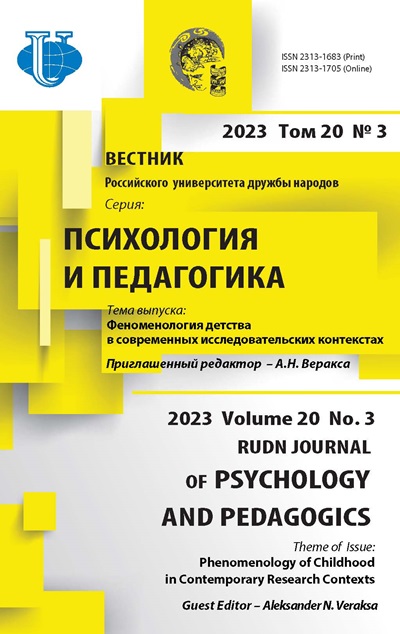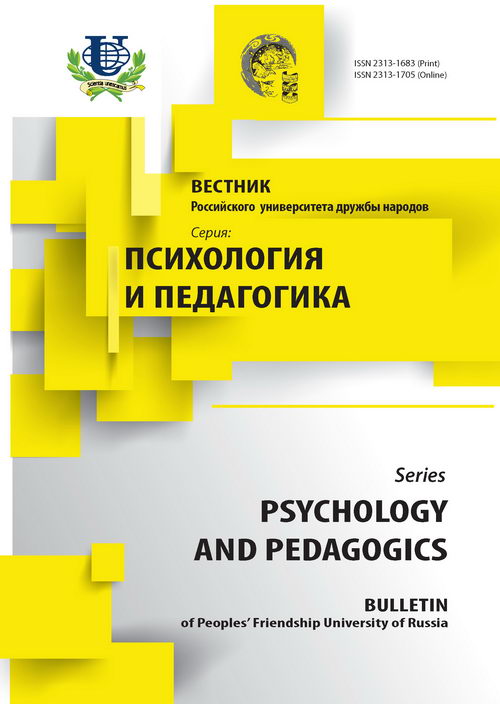COGNITIVE STYLE OF A PERSON AS A FACTOR OF EFFECTIVE EMOTION RECOGNITION
- Authors: Belovol EV1, Khvorova EM2
-
Affiliations:
- Moscow State Pedagogical University
- Peoples’ Friendship University of Russia
- Issue: No 3 (2015)
- Pages: 51-60
- Section: Articles
- URL: https://journals.rudn.ru/psychology-pedagogics/article/view/13466
Cite item
Full Text
Abstract
Facial expression is one of the most informative sources of non-verbal information. Early studies on the ability to recognize emotions over the face, pointed to the universality of emotion expression and recognition. More recent studies have shown a combination of universal mechanisms and cultural-specific patterns. The process of emotion recognition is based on face perception that’s why the in-group effect should be taken under consideration. The in-group advantage hypothesis posits that observers are more accurate at recognizing facial expressions displayed by the same culture compared to other culture members. On the other hand, the process of emotion recognition is determined by such cognitive features as a cognitive style. This article describes the approaches to emotion expression and recognition, culture-specific features to basic emotion expression. It also describes factors related to recognition of basic emotions by people from different cultures. It was discovered that field-independent people are more accurate in emotion recognition than field- dependent people because they are able to distinguish markers of emotions. There was found no correlation between successful emotion recognition and the observers’ gender, no correlation between successful emotion recognition and the observers’ race
About the authors
E V Belovol
Moscow State Pedagogical UniversityDepartment of Development Psychology
E M Khvorova
Peoples’ Friendship University of RussiaDepartment of Psychology and Pedagogy
References
















